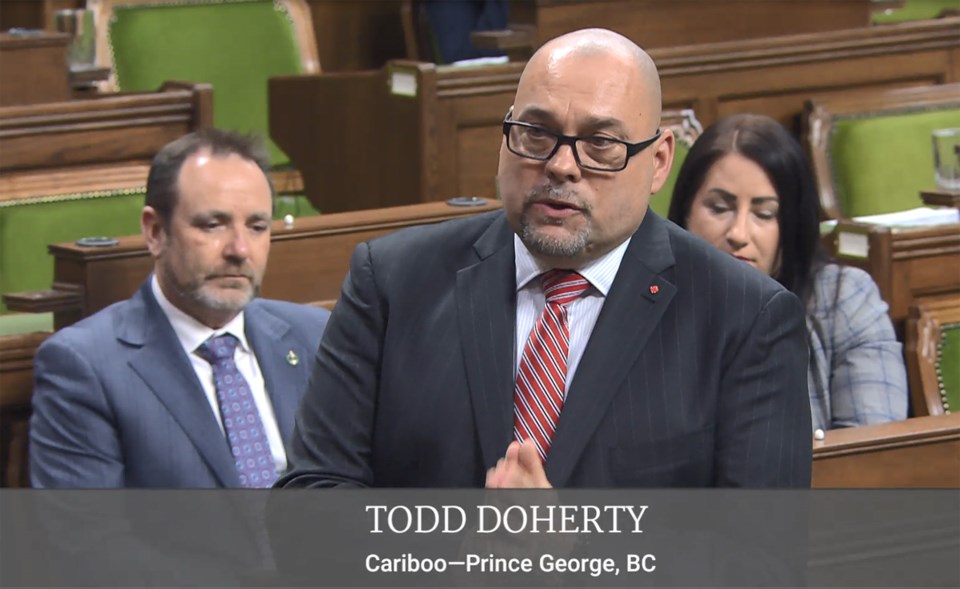Cariboo-Prince George Conservative MP Todd Doherty’s long-awaited 9-8-8 suicide prevention hotline will finally get connected in November.
“While this is a good start, critical investments for community-based mental health and substance use providers when callers are referred to their services were notably absent from today’s announcement,” said Doherty, in an email to the Citizen.
“I echo the Canadian Mental Health Association’s concerns that cost should not get in the way of care.”
Mental Health Minister Carolyn Bennett announced Monday the service will become operational on Nov. 30, backed by $156 million over three years in federal funding administered by the Centre for Addiction and Mental Health (CAMH) as promised in the March federal budget.
Once connected, the hotline will give Canadians the ability to dial 9-8-8 anywhere in the country to connect with trained responders by phone or text message in either English of French. The easy-to-remember line will be staffed 24 hours per day, 365 days per year.
In anticipation of increased demand for mental health services, the feds are also giving the CAMH $21.4 million to increase capacity of the country’s distress centres.
Based on the history of the 9-8-8 national mental health hotline introduced in the United States two years ago, calls are expected to increase four- to six-fold. Doherty said the government has failed to provide any new funding for community-based mental health providers and substance use agencies on the frontline of crisis response, which will have to deal with more callers being referred to their services.
Doherty also highlighted the need for change in public healthcare spending policy, which largely excludes mental health and substance use patients from public health insurance plans.
Such services as peer support, psychotherapy, mental health counselling, social work case management, eating disorder treatment and addiction recovery programs are not funded by the health care system and people have to pay out of pocket for those treatment services.
“On December 11th, 2020, I asked the House of Commons for unanimous consent to pass my motion to bring 9-8-8 to Canada,” said Doherty. “All members of Parliament supported the motion and nearly 1,000 days later Canadians are still waiting for 9-8-8. Our frontline agencies still have no more information on how these services will be provided.
On average, 12 Canadians die from suicide every day.
“9-8-8 is providing hope. We need to make sure we deliver on it,” said Doherty.



